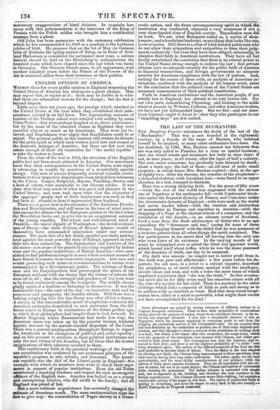Great advantages are gained by having labourers of different nations
in a Tropical European settlement. There is then little probability of combinations taking place for the purpose of raising wages to an exorbitant amount, or for en- forcing any improper demands. I once saw a remarkable instance of this at. Singapore, where the boatmen employed in conveying goods to and from the shipping are exclusively natives of the Coromandel coast. On one occasion they had been forbidden by the authorities to perform one of their noisy religious pro- cessions, and they thought to obtain a removal of the prohibition by striking work in a body; but within a few hours after this occurrence, the cargo-boats, which were the property of the merchants, were manned with Chinese and affairs pro- ceeded in their usual course. The consequence was, that the boatmen soon re- turned to their dirty; and there is not the slightest probability of "a strike" ever being attempted again. The natives of the different countries of the East are also each proficient in peculiar kinds of labour. Thus the Malay is the best adapted for clearing new lands; the Chinese being unaccustomed to these operations, from their country having been long under cultivation. The latter, again, are the best agriculturists, and the most skilful manufacturers of raw produce; while the natives of India prove superior herdsmen. They are all acquainted with the cul- ture of cotton, but not in an equal degree; the Chinese and natives of continental India claiming the precedence. The Indian islander is contented with simple food, but is expensive in his clothing, and therefore the best customer to the British manufacturer. The Chinese labourer wears little clothing, but expends a considerable portion of his wages in rich food. The native of continental India is sparing in eve7thin' g, and saves his wages to carry back to his own country.-- Earl's Enterprise in Tropical Australia.


























 Previous page
Previous page